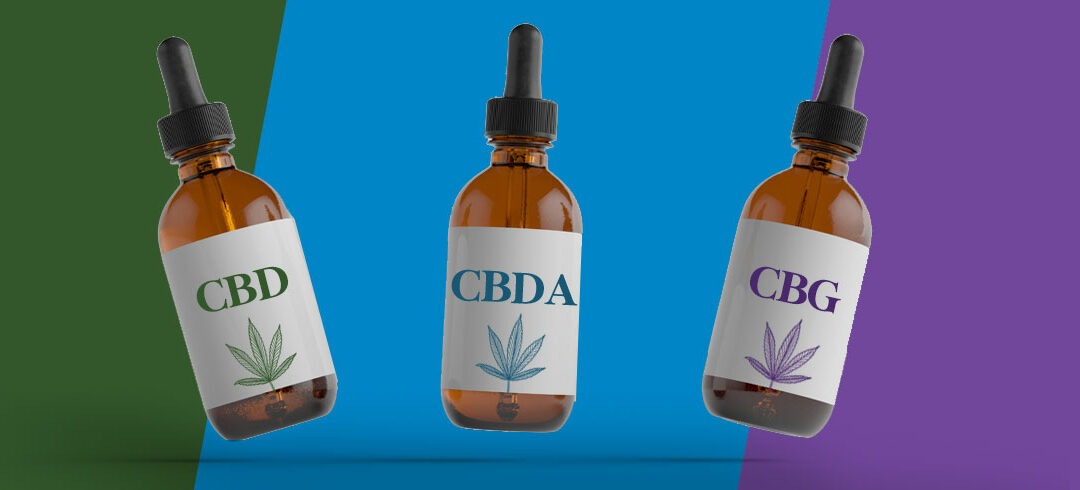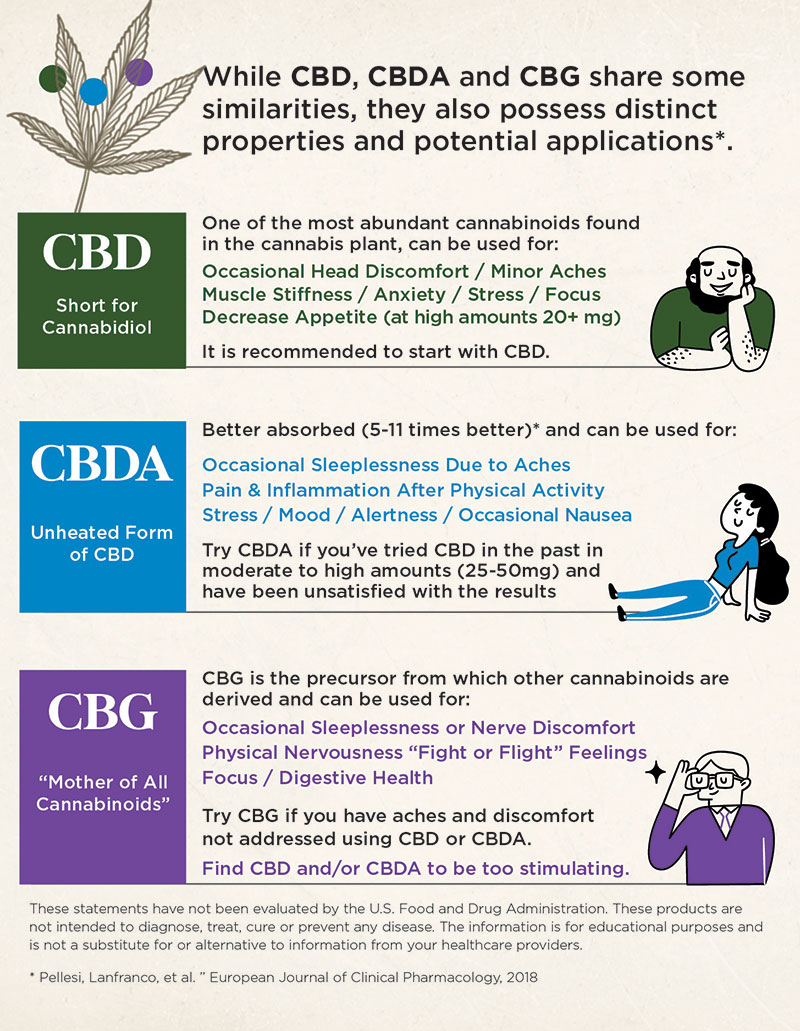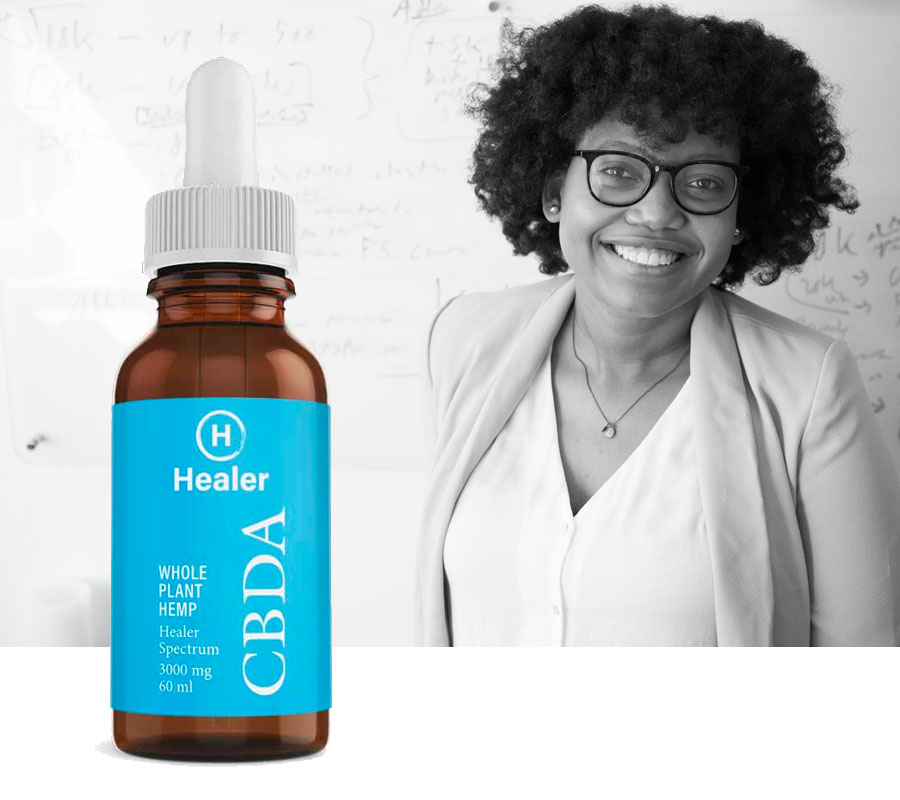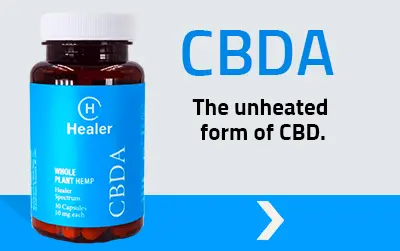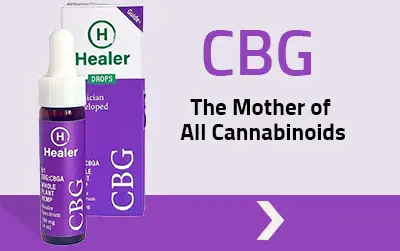CBD (cannabidiol), CBDA (cannabidiolic acid), and CBG (cannabigerol) are among the most widely discussed compounds found in the cannabis plant. While they share some similarities, they also possess distinct properties and potential applications.
Let’s delve into the differences between CBD, CBDA, and CBG to help you better understand their unique qualities.
CBD (Cannabidiol)
CBD, short for cannabidiol, is one of the most abundant cannabinoids found in the cannabis plant. It has gained widespread recognition for its therapeutic potential, largely due to its non-psychoactive nature.
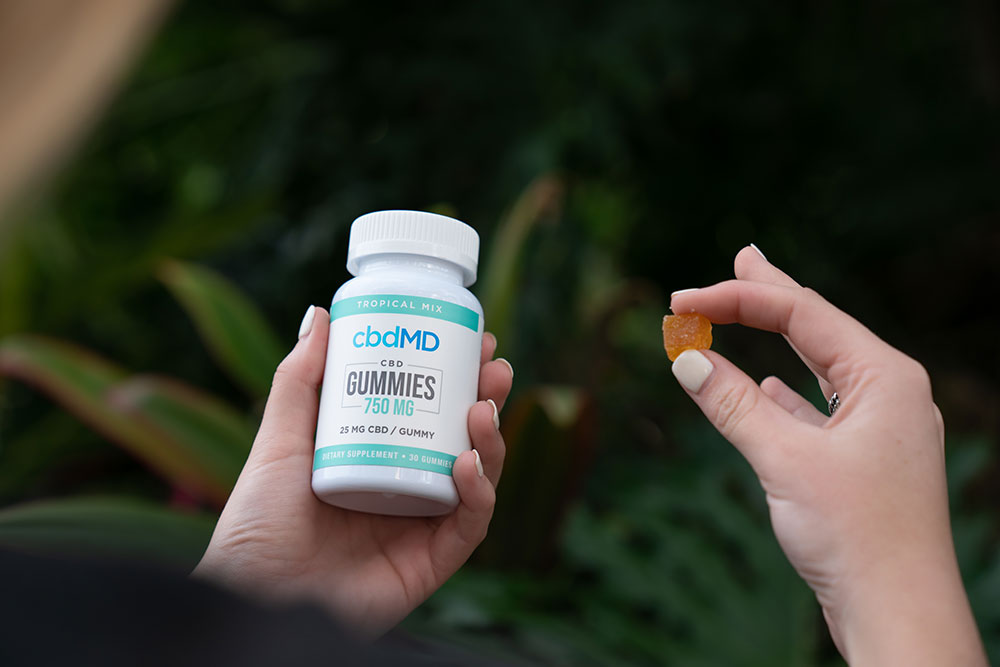
Here are some key points about CBD.
Non-Psychoactive: Unlike its cousin THC (tetrahydrocannabinol), CBD doesn’t produce the “high” associated with marijuana use. It interacts with the endocannabinoid system (ECS) in a way that promotes relaxation and overall well-being without altering one’s mental state.
Extraction: CBD is commonly extracted from the hemp plant, which contains minimal levels of THC (below 0.3%). It is available in various forms, including oils, capsules, gummies, and topicals.
CBD Health Benefits
CBD has shown promise in various medical applications*, including pain management, anxiety reduction, seizure control (Epidiolex), and anti-inflammatory effects. It is also popular as a general wellness supplement.
- Many people successfully use CBD for mental worry and stress before bed and in the middle of the night, while others report that their use during the day helps them to relax and sleep more at night.*
- CBD may disturb sleep in a small number of people when taken directly before bed.*
- CBD in low amounts (1-10 drops) can be energizing for some.* If you want to try it at bedtime, you may find that increasing your usage amount by 2–4x may help with relaxation and bedtime.
CBDA (Cannabidiolic Acid)
CBDA, or cannabidiolic acid, is the precursor to CBD and is found in raw, unprocessed cannabis plants. It’s primarily in the form of CBDA that the plant synthesizes CBD. Here are some key points about CBDA:
CBDA, like CBD, is a non-impairing and non-intoxicating cannabinoid.
Raw Form: CBDA is typically found in the raw, unheated cannabis plant, such as hemp. (It converts to CBD through a process known as decarboxylation, which involves heat and time.)
Potential Benefits of CBDA: While research on CBDA is still in its early stages, it has shown promise in various areas, including anti-nausea and anti-inflammatory effects. Some believe that CBDA may have unique benefits due to its raw, unaltered state.
CBDA absorbs into bloodstream 5x-11x times better than CBD when taken orally.[1]
There is also some evidence-based on animal models that CBDA is stronger and more potent than CBD, not just because it’s getting absorbed better but because it is acting more powerfully.
For example, animal studies have found CBDA to be
10x more potent than CBD in a model of seizures [2],
100x more potent in a model of inflammatory pain [3],
10,000x more potent in a model of nausea [4], and
50,000x more potent in a model of anxiety [5]
How does CBDA impact the body compared to CBD?
“You’ll see better results at lower dosages when using CBDA products compared to pure or nearly-pure CBD isolate. If you have tried CBD without much success, don’t assume CBDA won’t help.” Healer
CBDA and CBD both have anti-inflammatory properties, but may act via different mechanisms in the body. For example, unlike CBD, CBDA has been shown to decrease the activity of the COX-2 enzyme, an enzyme responsible for increasing inflammation.
CBDA may be more potent than CBD for some applications based on studies of rodent models of nausea [4], stress-induced anxiety [5], pain and inflammation [3], and seizures [2]. We don’t know if similar results translate to humans yet, but it is possible that CBDA may be more effective than CBD at lower doses.
Which is best for me, CBDA or CBD?
It is recommended to start with CBD.
However, try a CBDA product if:
You’ve tried CBD in the past in moderate to high amounts (25-50mg) and have been unsatisfied with the results
You want to try CBDA’s more powerful benefits or know you respond better to CBDA.
CBG (Cannabigerol)
CBG, or cannabigerol, is another non-psychoactive cannabinoid found in the cannabis plant. It is often referred to as the “mother of all cannabinoids” because it is the precursor from which other cannabinoids are derived.
CBG shares some overlapping features with the better known cannabinoids like CBD and CBDA, but it also has its own distinct properties.
Here are some key points about CBG:
Precursor to Other Cannabinoids: CBG is the starting point in the biosynthesis of major cannabinoids, including CBD and CBDA. As the plant matures, CBG is converted into these other compounds.
Potential Benefits: CBG is gaining attention for its potential anti-inflammatory, neuroprotective, and mood-enhancing properties*. Research on CBG is still in the early stages, but it shows promise in various areas.
When it comes to the benefits & effects of CBG vs CBD, early indicators suggest that:
- CBG is more calming and relaxing when compared to CBD
- CBG may be more effective for aches and discomfort not addressed by CBD
- CBG may be more potent at lower usage amounts and is unlikely to diminish the effects of THC, especially when compared to CBD – from Healer
You should try CBG if you:
Have aches and discomfort not addressed using CBD or CBDA especially if they are occasional never discomfort.
Want a product to help you calm your fight of flight responses
Want to support digestive health
Find CBD and/or CBDA to be too stimulating
Availability: CBG products, such as CBG oils and capsules, are available.
Mental Health
CBG is reported to be more calming and relaxing when compared to CBD (which works through serotonin receptors) as CBG works thru the a2 receptors of the sympathetic “fight or flight.”
*These statements have not been evaluated by the U.S. Food and Drug Administration. These products are not intended to diagnose, treat, cure or prevent any disease. The information is for educational purposes and is not a substitute for or alternative to information from your healthcare providers.
[1] Pellesi, Lanfranco, et al. ” European Journal of Clinical Pharmacology 74.11 (2018): 1427-1436.
[2] Takeda, Shuso, et al. Drug Metabolism and Disposition 36.9 (2008): 1917-1921.
[3] Rock, E. M., et al. British Journal of Pharmacology 169.3 (2013): 685-692.
[4] Rock, Erin M., et al. Psychopharmacology 234.14 (2017): 2207-2217
[5] Anderson, Lyndsey L., et al. Journal of natural products 82.11 (2019): 3047-3055.


